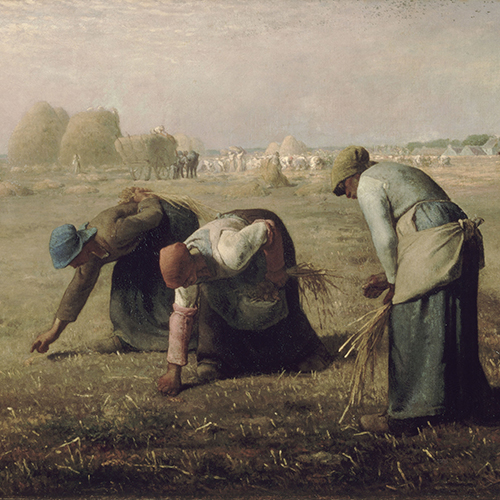
The Gleaners (detail) by Jean-François Millet, 1857
In mid-19th-century France, the important political, philosophical, economic, and cultural changes sweeping through Europe weren’t lost on that nation’s artists. Many painters rejected idealized Classicism and Romanticism, dominant in European art since the late 1700s, and began creating art that reflected what they saw around them in the modern world.
This style, championed by controversial French painter Gustave Courbet among others, became known as Realism. It focused on ordinary individuals engaged in seemingly mundane activities. But it forced the Salon audiences to look at the lives of poor, working-class individuals. Printmaker and painter Honoré Daumier took the style even further, producing wicked political and social satire—and paying a price for his audacity by spending time in jail.
Art historian Nancy G. Heller, professor emerita at the University of the Arts in Philadelphia, examines the evolution, significance, and later influence of French Realism. The emphasis is on painting, but she also considers parallel developments in sculpture by Jules Dalou and Auguste Rodin, the photography of Nadar, and related developments in French literature, as well as the rise of Socialism. Heller goes beyond France to consider Realism’s emergence in Germany, Italy, and especially the United States, where it informed the work of Thomas Eakins and members of what came to be called the Ashcan School, including John Sloan, George Bellows, and Abastenia St. Leger Eberle.
General Information